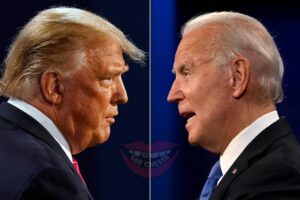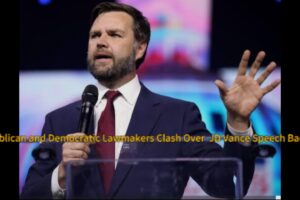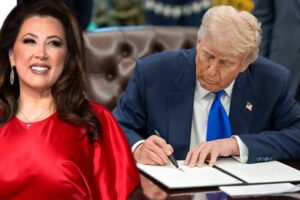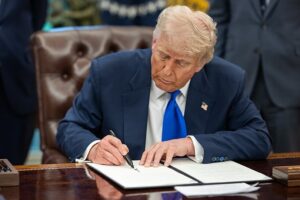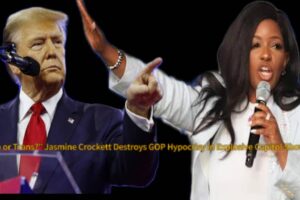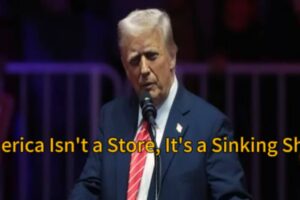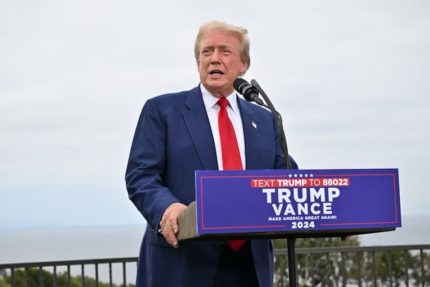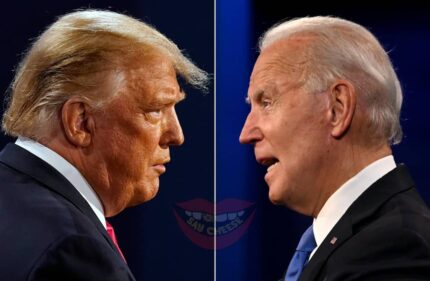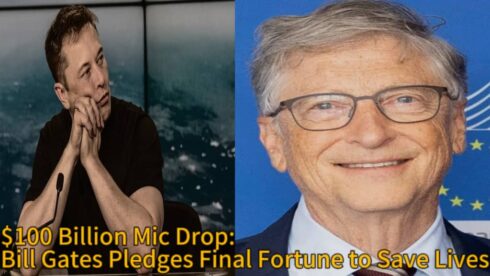Donald Trump, the former U.S. president and current Republican frontrunner, has unveiled a bold new initiative aimed at reshaping how the federal government generates revenue. In a statement on social media, Trump announced the establishment of the External Revenue Service (ERS), a new agency tasked with collecting tariffs, duties, and other revenues from foreign nations.
The ERS, as Trump describes it, would operate in direct contrast to the Internal Revenue Service (IRS), which collects taxes from American citizens. “I am today announcing that I will create the EXTERNAL REVENUE SERVICE to collect our Tariffs, Duties, and all Revenue that comes from Foreign sources,” Trump declared. He emphasized that this approach would reduce the government’s reliance on taxing Americans, which he has repeatedly criticized as excessive and unfair.
A Shift in Economic Philosophy
Trump’s announcement signals a significant departure from the current revenue collection structure, where the U.S. Customs and Border Protection (CBP) oversees tariffs. He criticized past trade agreements for being “soft and pathetically weak,” asserting that they have disproportionately benefited foreign economies at the expense of the American taxpayer.
“Through soft and pathetically weak Trade agreements, the American Economy has delivered growth and prosperity to the World, while taxing ourselves. It is time for that to change,” Trump stated. His vision for the ERS would centralize tariff collection, potentially reorganizing or even replacing parts of the CBP. Critics and supporters alike expect this announcement to dominate discussions during Senate confirmation hearings for Trump’s economic cabinet picks, including hedge fund manager Scott Bessent, his nominee for Treasury Secretary.
Trump’s Tariff Strategy and Global Trade Impact
Trump has long championed the use of tariffs as both a revenue-generating tool and an economic weapon. During his campaign, he proposed a universal 10% tariff on global imports and even floated tariffs as high as 60% on Chinese goods if Beijing fails to curb the flow of fentanyl into the U.S. through Mexico.
The former president’s aggressive stance extends to neighboring countries as well. Trump has warned Mexico and Canada of higher tariffs unless they take stronger measures to curb illegal immigration and drug trafficking. In a controversial remark, he suggested that Canada could avoid higher tariffs by becoming the 51st U.S. state. “We will begin charging those that make money off of us with Trade, and they will start paying—FINALLY, their fair share,” Trump wrote, underscoring his intent to level the playing field.
Historical Justifications and Vision for the Future
Trump’s proposal draws inspiration from historical economic policies, particularly those of the 25th U.S. president, William McKinley, who championed tariffs as a primary source of government revenue. During his campaign, Trump frequently referenced the 1890s as a golden era when the U.S. relied on tariffs instead of income taxes.
“When we were a smart country, in the 1890s … this is when the country was relatively the richest it ever was. It had all tariffs. It didn’t have an income tax,” Trump said. He has also hinted at eliminating income taxes altogether, including taxes on tips, Social Security benefits, and overtime pay. Critics argue that this approach risks sparking trade wars and disrupting global supply chains, but Trump remains undeterred. “I am a Tariff Man,” he proclaimed, vowing to ensure that foreign entities contribute their “fair share” to the U.S. economy.
As Trump prepares to formalize the ERS on his first day back in office, this sweeping proposal is likely to face intense scrutiny from policymakers, economists, and international trading partners. Whether this vision will lead to economic revitalization or spark new trade disputes remains to be seen.
Critics Question Viability and Impact
Economic experts and political opponents have questioned the viability and impact of the ERS. Heather Long, an economic columnist at the Washington Post, described the move as “clever marketing” but warned that higher tariffs would ultimately burden American consumers through increased costs.
Democratic lawmakers have also criticized the plan, with Senator Ron Wyden labeling it a “multi-trillion-dollar tax hike on American families and small businesses.” He argued that the ERS would serve as a facade for policies that favor the wealthy while disproportionately impacting everyday Americans.
As Trump prepares to take office on January 20, the debate over the ERS highlights the broader ideological divide over trade and economic policy. Whether the plan will succeed in reshaping the U.S.’s trade landscape remains to be seen.

